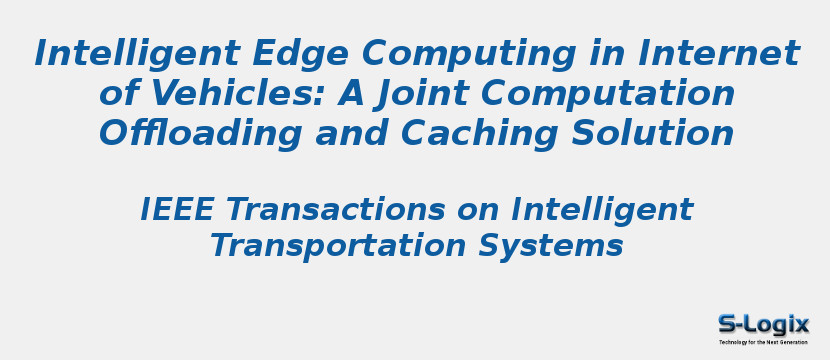Research Area: Edge Computing
Recently, Internet of Vehicles (IoV) has become one of the most active research fields in both academic and industry, which exploits resources of vehicles and Road Side Units (RSUs) to execute various vehicular applications. Due to the increasing number of vehicles and the asymmetrical distribution of traffic flows, it is essential for the network operator to design intelligent offloading strategies to improve network performance and provide high-quality services for users. However, the lack of global information and the time-variety of IoVs make it challenging to perform effective offloading and caching decisions under long-term energy constraints of RSUs. Since Artificial Intelligence (AI) and machine learning can greatly enhance the intelligence and the performance of IoVs, we push AI inspired computing, caching and communication resources to the proximity of smart vehicles, which jointly enable RSU peer offloading, vehicle-to-RSU offloading and content caching in the IoV framework. A Mix Integer Non-Linear Programming (MINLP) problem is formulated to minimize total network delay, consisting of communication delay, computation delay, network congestion delay and content downloading delay of all users. Then, we develop an online multi-decision making scheme (named OMEN) by leveraging Lyapunov optimization method to solve the formulated problem, and prove that OMEN achieves near-optimal performance. Leveraging strong cognition of AI, we put forward an imitation learning enabled branch-and-bound solution in edge intelligent IoVs to speed up the problem solving process with few training samples. Experimental results based on real-world traffic data demonstrate that our proposed method outperforms other methods from various aspects.
Keywords:
Author(s) Name: Zhaolong Ning; Kaiyuan Zhang; Xiaojie Wang; Lei Guo; Xiping Hu; Jun Huang; Bin Hu; Ricky Y. K. Kwok
Journal name: IEEE Transactions on Intelligent Transportation Systems
Conferrence name:
Publisher name: IEEE
DOI: DOI: 10.1109/TITS.2020.2997832
Volume Information: Volume: 22, Issue: 4, Page(s): 2212 - 2225
Paper Link: https://ieeexplore.ieee.org/document/9109630
